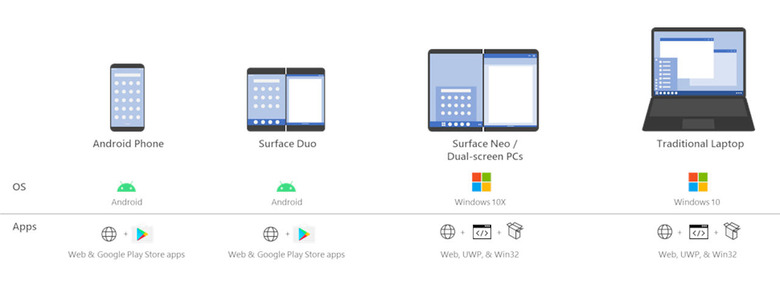Surface Duo and Neo will support existing apps but only on one screen
While foldable phones like the Samsung Galaxy Fold, Huawei Mate X, and, soon, the Motorola Razr remain the dream of phone makers, consumers may be more interested in more practical and less costly solutions. We're still not sure if Microsoft's upcoming dual-screen devices are going to be any of those but, considering their Courier inspiration, the Surface Neo and Surface Duo have unsurprisingly generated a mix of excitement, curiosity, and also some skepticism. In its first public call to app developers, Microsoft is clearing the air by promising that existing apps will work on these unconventional devices but only if they don't want to offer a better experience on dual-screen tablets and phones.
That the Surface Neo and Surface Duo will support running existing Windows and Android apps, respectively, is probably a given but this is Microsoft we're talking about. With the legacy of Windows RT, or more recently Windows on ARM, still in people's memories, there was a legitimate reason to be worried, especially on the Windows side. Fortunately, the Windows 10X Surface Neo will still run on Intel chips, making compatibility on the CPU level less of a problem.
That said, Microsoft doesn't explicitly mention the one caveat to this promise. Those existing Android, Web, UWP, and win32 apps will run on the new devices but only on one screen, or at least that's the implication of its diagrams. They won't be able to take advantage of the new form factor, even to stretch the app across two screens. For that, you will need to heed Microsoft's call to embrace dual-screen experiences.

Of course, that means using the company's APIs to adjust their software to use both screens simultaneously. Microsoft calls it a common model to enhance existing apps but doesn't mention how much work is needed to actually pull that off. Early adopters need to send Microsoft an email to get access to those secret APIs.
Microsoft definitely deserves credit for putting out the call to developers this early to help them prepare for what's coming. The other way around, dumping a new device and then reaching out to developers, obviously didn't work the past few times. Whether that will lead to success for the devices will still depend on their availability and, more importantly, their price.
